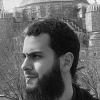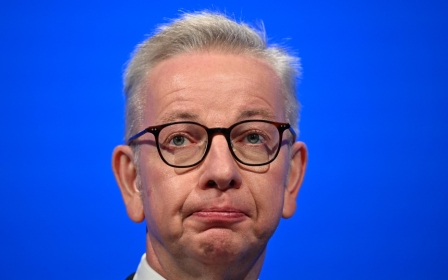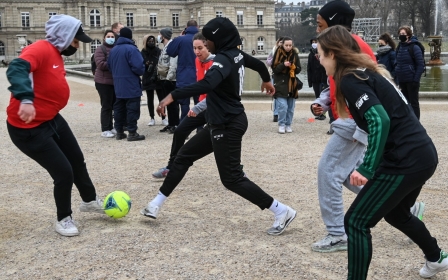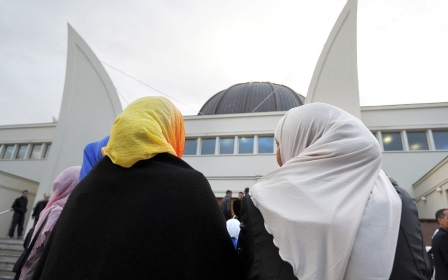Twenty years on, the French hijab ban is normalised across the political spectrum
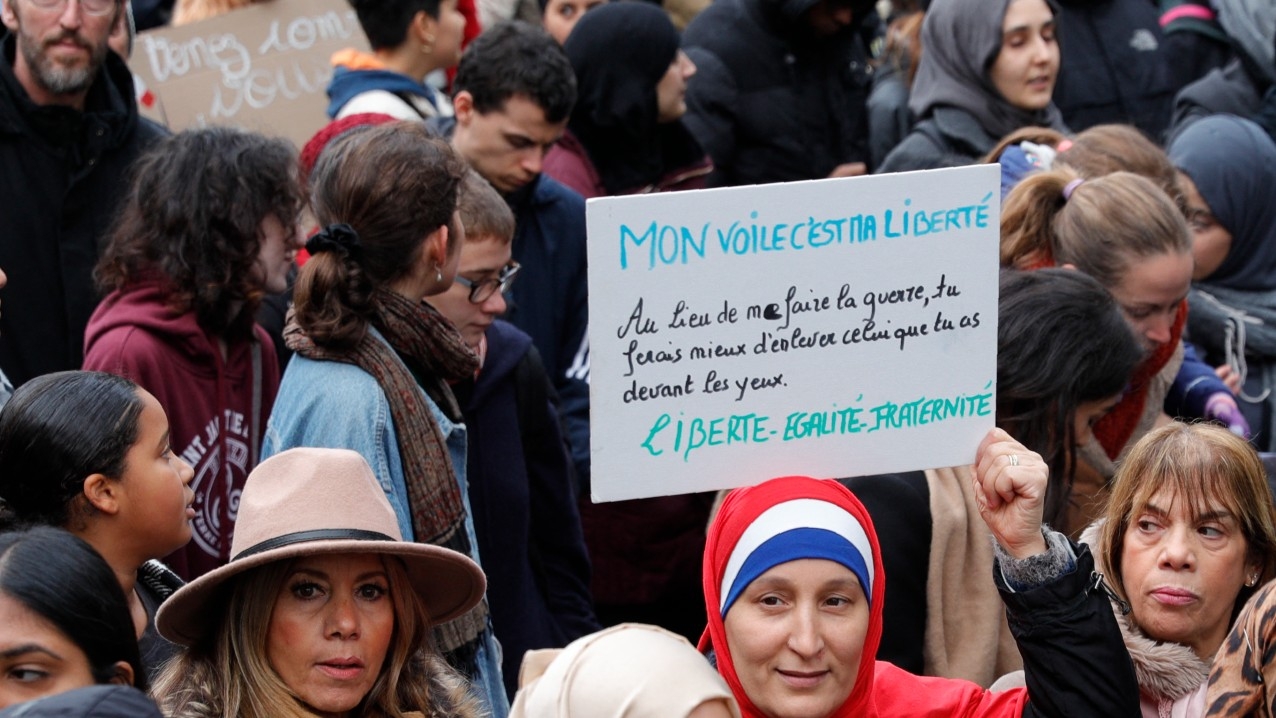
As French Muslims organise daily to support their kin in Palestine, a painful memory appears in their mind. Twenty years ago, on 15 March 2004, the hijab was banned from public schools.
The ban is now normalised across the political spectrum, and no political party has expressed any interest in overturning it.
In the western liberal world, this legislation is unheard of outside France.
The educational space is left open to diverse religious affiliations and practices. When the British Michaela Community School in London, led by the controversial Katharine Birbalsingh, decided to oppose prayer rituals - yet allow hijab - the decision appeared as the Islamophobic exception to common and fair practice.
As prayers are criminalised in French educational spaces, the contrast between the two nations is vivid. The French Islamophobic norm, two decades old, is the British recent exception.
Stay informed with MEE's newsletters
Sign up to get the latest alerts, insights and analysis, starting with Turkey Unpacked
Nowadays in France, the governance we are subjected to has severely increased in pressure. State officials harass thousands of Muslim establishments and find artificial motives to justify shutting down many of them.
Last year, Muhammad Rabbani - a seasoned British Muslim activist from Cage International - was banned from entering France, and local imams are being exiled one after the other. In retrospect, the hijab ban was a major step in a long descent toward unbridled persecution.
A different rationale
In 2004, the world was in the early - but already brutal - stages of the global "war on terror".
Islam and Muslims were blamed for political instability: their existence was problematised and required urgent action. Anticipatory anxiety polluted the western psychological landscape.
Across the West, "countering violent extremism" (CVE) became an obsession as it conveniently allowed unjustified repressive measures to be adopted without acknowledging the state's contribution to political violence. As a result, "anti-terror" policies were expeditiously crafted and energetically implemented.
The ban was regarded as a natural injunction to abandon an Islamic practice deemed barbaric and adopt a more enlightened 'French' way of life
France, however, took a relatively different approach. Of course, it shared the same corrupted diagnosis: Muslims were feral, and their mere presence was a civilisational threat to be dealt with accordingly.
Yet the French state didn't choose to ramp up its anti-terror powers immediately for a simple reason: it already had access to extensive arbitrary capabilities inherited from its rich, oppressive history.
A few years before the beginning of the so-called "war on terror", it imprisoned hundreds of Algerian Muslim innocents accused of engaging in violent political actions in support of the Islamic resurgence in Algeria. A show trial was staged in 1998, but it became mired in accusations of bias, and in the end, most detainees were acquitted after years of unjustified detention.
Therefore, to France, finding new counter-extremism powers was irrelevant. Instead, it needed a more explicit and direct Islamophobic law, and banning hijab from public schools was the easiest choice.
As France refuses to recognise the legal existence of minorities - and hence refuses to protect their cultural and religious identities as generally required by international law - it didn't face any significant constitutional hindrance.
In line with its longstanding "assimilatory" practice and hard secularism - according to which foreigners are meant to assimilate French cultural norms and distance themselves from their religious beliefs - the ban was regarded as a natural injunction to abandon an Islamic practice deemed barbaric and adopt a more enlightened "French" way of life.
The state was sending a strong and humiliating message to Muslim youth: the ways of your forefathers are to be abandoned quickly. Access to education was now conditioned on proving one's forced "deliverance" from Islam. The blow was hard to recover from.
Exclusion by law
Two researchers from Stanford University, Vasiliki Fouka and Aala Abdelgadir, documented and analysed the ban's consequences in 2019. They found that the ban hurt Muslim girls' ability to complete their education and obstructed their access to the labour market. It doubled the gap between the percentage of non-Muslim and Muslim girls completing their secondary education in favour of the former.
Moreover, the intense attention directed toward Muslim teenagers paved the way for a "culture of discrimination". The ban, cosmetically covered with a varnish of legitimacy by French Islamophobia, engineered widespread suspicion and scrutiny.
Frequently, Muslim activists have received testimonies from Muslim girls whom their headteacher criticised for wearing long skirts deemed "not occidental enough".
This intrusive and troubling culture led to the expansion of the hijab ban a few months ago, as it now includes abayas among the proscribed "religious symbols".
Exclusion by way of legislation is the very spirit of any apartheid regime, whose ultimate goal is the institutionalisation of two-tier citizenship: two groups, two legal regimes.
Two decades after its adoption, the ban's legacy is the continued attempt to restore colonial governance, according to which Muslims should be granted fewer rights and more duties of allegiance.
This attempt recently manifested itself twice in the mainstream political discourse. In his 2023 book, former prime minister and future presidential candidate Edouard Philippe advocated for a "different set of laws and obligations" specifically applied to Muslims, an expression euphemistically used to describe an Islamophobic apartheid.
The next Islamophobic law, expected to be adopted in two years to bolster the presidential chances of Macron's centrist heir, will continue to pursue this racist endeavour
In February 2024, Nicole Belloubet, the current minister of education, suggested the creation of separate classes for "radicalised" Muslim pupils.
The next Islamophobic law, expected to be adopted in two years to bolster the presidential chances of Macron's centrist heir, will continue to pursue this racist endeavour.
In light of this loose political and constitutional framework, which allows the passing of any legislation based on Islamophobia, it wouldn't be a surprise if hijab is targeted once more. Indeed, we are seeing similar factors now that were present in 2004.
Today, as yesterday, the state has built and used executive powers meant to target the threat of political violence. It would be difficult to justify new CVE legislation now. However, wearing a hijab remains lawful in universities. The state, just like it banned hijab from public schools 20 years ago, could now criminalise it in these higher educational institutions.
The political will to exclude Muslims from the public square is as present as ever. Muslim women could - once again - be the chosen prey.
The views expressed in this article belong to the author and do not necessarily reflect the editorial policy of Middle East Eye.
Middle East Eye delivers independent and unrivalled coverage and analysis of the Middle East, North Africa and beyond. To learn more about republishing this content and the associated fees, please fill out this form. More about MEE can be found here.


